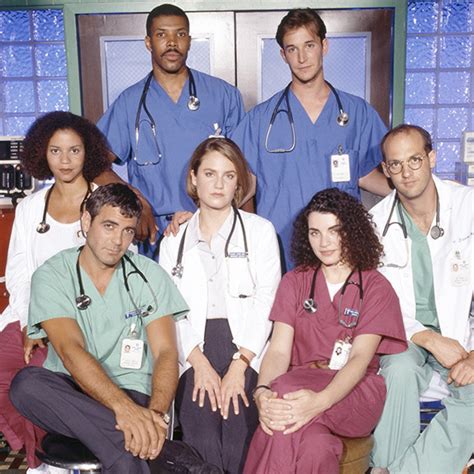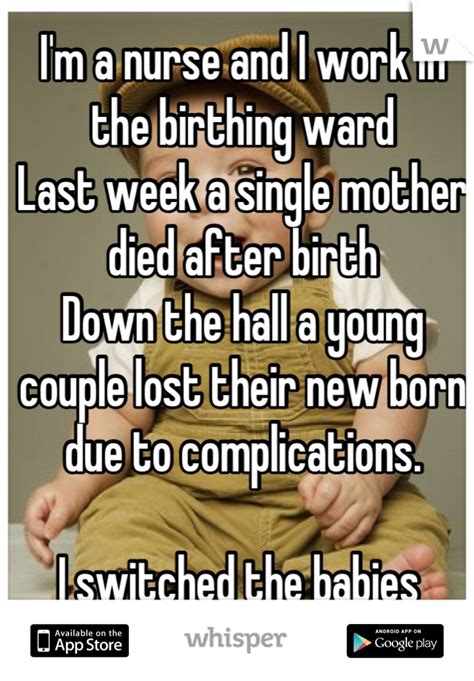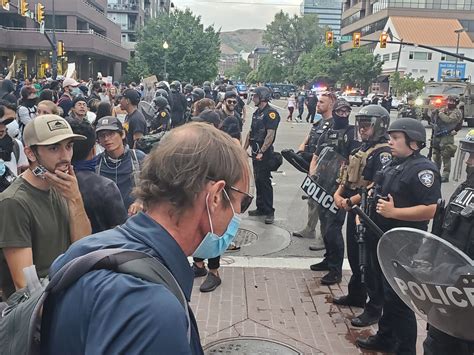
Burnout, staffing shortages, and the emotional toll of life-and-death decisions are just some of the harsh realities facing emergency room physicians, according to a series of anonymous confessions from ER doctors compiled and published online. The revelations offer a glimpse behind the curtain of a high-pressure environment where medical professionals often grapple with system failures, patient misconceptions, and the ever-present weight of responsibility.
Emergency room doctors, often the first point of contact for patients in critical condition, face a daily barrage of challenges that extend far beyond treating medical emergencies. The collected confessions paint a picture of a system strained by overcrowding, underfunding, and a growing disconnect between public perception and the realities of emergency medicine. These revelations highlight not only the personal struggles of ER doctors but also systemic issues impacting patient care.
One common theme emerging from the confessions is the issue of overcrowding and its detrimental effects on patient care. “We are constantly dealing with overcrowding,” one doctor confessed. “Patients are boarding in the ER for days because there are no beds upstairs. This leads to delays in care, increased patient suffering, and a higher risk of complications.” This situation is exacerbated by a lack of resources, including inadequate staffing levels. “We are constantly short-staffed,” another doctor revealed. “This means we are stretched thin and unable to provide the level of care that our patients deserve.”
The confessions also shed light on the emotional toll of working in the ER. Doctors described feeling overwhelmed by the constant pressure to make life-or-death decisions, the frustration of dealing with patients who are abusive or demanding, and the sadness of witnessing suffering and death. “I’ve seen things that I can never unsee,” one doctor wrote. “The trauma of working in the ER stays with you long after you leave work.”
Furthermore, the confessions reveal a disconnect between public perception of the ER and the realities faced by medical professionals. Many patients, according to the doctors, use the ER as a primary care facility, seeking treatment for non-emergency conditions that could be addressed by a family physician. This influx of non-emergency patients contributes to overcrowding and delays care for those with true emergencies. “People come to the ER for things that could easily be treated at an urgent care clinic or by their primary care doctor,” one doctor lamented. “This puts a strain on our resources and makes it harder for us to care for patients who are truly sick.”
The anonymous nature of the confessions underscores the sensitive nature of the issues being discussed. Doctors may be hesitant to speak out publicly for fear of professional repercussions. However, the collective voice of these anonymous confessions provides a powerful indictment of the challenges facing emergency medicine and a call for systemic change.
The confessions also touch upon the ethical dilemmas that ER doctors face on a regular basis. One doctor described the difficult decision of rationing care when resources are limited. “Sometimes we have to make tough choices about who gets what treatment,” the doctor wrote. “It’s a terrible feeling to know that you are not able to provide the best possible care to every patient.” These ethical dilemmas are compounded by the increasing complexity of medical technology and the rising cost of healthcare.
Another recurring theme is the frustration of dealing with patients who are non-compliant with medical advice. Doctors described patients who refuse to take their medications, fail to follow up with specialists, or engage in behaviors that exacerbate their medical conditions. “It’s frustrating to see patients who are not taking care of themselves,” one doctor confessed. “We can only do so much if they are not willing to help themselves.”
The confessions also highlight the importance of teamwork and communication in the ER. Doctors rely on a team of nurses, technicians, and other healthcare professionals to provide comprehensive care to patients. Effective communication is essential for ensuring that everyone is on the same page and that patients receive the best possible treatment. “We are a team,” one doctor wrote. “We have to rely on each other to get through the day.”
The anonymity afforded to the confessors allowed for a level of candor rarely seen in public discourse about the medical profession. The issues raised are not isolated incidents but rather systemic problems that require comprehensive solutions. These confessions serve as a wake-up call, urging policymakers, healthcare administrators, and the public to address the challenges facing emergency medicine and to support the dedicated professionals who work tirelessly to save lives.
The rise in violence against healthcare workers was also mentioned, highlighting the dangers ER staff face daily. “I’ve been threatened, cursed at, and even physically assaulted,” one doctor admitted. “It’s becoming a more and more common occurrence, and it’s making it harder to come to work every day.” This issue is compounded by the fact that many hospitals lack adequate security measures to protect their staff.
The confessions paint a stark picture of a healthcare system under immense pressure, where the dedication and resilience of ER doctors are constantly tested. The need for systemic change, increased resources, and greater public awareness is paramount to ensure that emergency rooms can continue to provide the critical care that patients need. The experiences shared are not unique; they echo the struggles faced by emergency medical professionals across the country and highlight the urgent need for comprehensive reform.
The impact of the COVID-19 pandemic exacerbated many of the existing problems in the ER. “The pandemic pushed us to the brink,” one doctor stated. “We were overwhelmed with patients, short on staff, and constantly worried about our own safety.” The pandemic also led to an increase in burnout and mental health issues among healthcare workers.
These confessions are a powerful reminder of the human cost of a broken healthcare system. They offer a glimpse into the lives of the dedicated professionals who work on the front lines of emergency medicine and a call for action to address the challenges they face. The revelations presented in these anonymous confessions are not just isolated anecdotes; they represent a widespread crisis in emergency medicine that demands immediate attention.
The confessions also reveal a deep-seated frustration with the administrative burdens placed on ER doctors. “We spend so much time on paperwork and documentation that we don’t have enough time to spend with patients,” one doctor complained. This administrative burden takes away from valuable time that could be spent providing direct patient care.
Furthermore, the confessions highlight the lack of support for ER doctors who are struggling with mental health issues. Many doctors are hesitant to seek help for fear of being stigmatized or losing their jobs. “There is a culture of silence around mental health in medicine,” one doctor explained. “We are expected to be strong and resilient, but we are human beings too.”
The reliance on locum tenens physicians (temporary doctors) to fill staffing gaps was also a point of concern. While locum tenens physicians can provide valuable coverage, they may not be as familiar with the hospital’s policies and procedures, which can lead to errors and delays in care. “We rely heavily on locums,” one doctor said. “But it’s not ideal because they don’t always know the system as well as the regular staff.”
The confessions also shed light on the challenges of treating patients with complex medical conditions. Many patients have multiple chronic illnesses, which can make it difficult to diagnose and treat their acute problems. “We are seeing more and more patients with complex medical histories,” one doctor noted. “It takes a lot of time and effort to sort through all of their medical information and figure out what is going on.”
The issue of medical errors was also addressed, with doctors acknowledging that mistakes happen in the ER. However, they emphasized that these errors are often the result of systemic problems, such as fatigue, understaffing, and poor communication. “We are all human, and we make mistakes,” one doctor admitted. “But we need to create a system that minimizes the risk of errors.”
The confessions also reveal a growing concern about the impact of social media on patient care. Patients are increasingly using social media to research their symptoms and to share their experiences with others. While this can be helpful in some cases, it can also lead to misinformation and unrealistic expectations. “Patients come in with all sorts of information they’ve found online,” one doctor said. “It’s our job to sort through the facts and the fiction.”
The confessions underscore the need for a more holistic approach to healthcare that addresses the social determinants of health. Many patients who come to the ER are struggling with poverty, homelessness, food insecurity, and other social problems. These social problems can exacerbate their medical conditions and make it more difficult for them to recover. “We need to address the root causes of illness,” one doctor argued. “We can’t just treat the symptoms.”
The issues revealed in these confessions are not limited to the United States. Emergency rooms around the world are facing similar challenges. The need for systemic change, increased resources, and greater public awareness is a global issue.
The confessions serve as a powerful reminder of the importance of supporting healthcare workers. They are on the front lines of emergency medicine, working tirelessly to save lives and provide care to those in need. We must do everything we can to support them and to ensure that they have the resources they need to do their jobs effectively.
The long hours and demanding nature of the work take a toll on personal lives. Many ER doctors struggle to maintain healthy relationships and to find time for their own well-being. “It’s hard to have a life outside of the ER,” one doctor confessed. “The hours are long, and the work is stressful. It’s easy to burn out.”
The confessions also highlight the need for more research on the causes and consequences of burnout among ER doctors. Burnout can lead to a variety of negative outcomes, including decreased job satisfaction, increased medical errors, and higher rates of suicide. “We need to understand why doctors are burning out and what we can do to prevent it,” one doctor argued.
The confessions also reveal a growing concern about the corporatization of healthcare. Many hospitals are now owned by large corporations, which are often more focused on profits than on patient care. This can lead to cuts in staffing, reduced resources, and increased pressure on doctors to see more patients. “Healthcare is becoming more and more about the bottom line,” one doctor lamented. “It’s not good for patients or for doctors.”
The confessions paint a sobering picture of the challenges facing emergency medicine today. They offer a glimpse into the lives of the dedicated professionals who work on the front lines of healthcare and a call for action to address the systemic problems that are undermining their ability to provide quality care. The issues raised in these anonymous confessions are not new, but they are becoming increasingly urgent. The time for change is now.
The confessions also address the impact of technology on emergency medicine. While technology has the potential to improve patient care, it can also create new challenges. For example, electronic health records can be cumbersome and time-consuming, and telemedicine can be difficult to use with patients who are not technologically savvy. “Technology can be a blessing and a curse,” one doctor said. “It can help us to provide better care, but it can also create new problems.”
The confessions reveal a growing concern about the rising cost of medical education. Many doctors are graduating with hundreds of thousands of dollars in debt, which can make it difficult for them to pursue their dreams and to provide care to underserved communities. “Medical school is incredibly expensive,” one doctor said. “It’s a barrier to entry for many people.”
The confessions highlight the need for more diversity in the medical profession. Patients are more likely to trust and feel comfortable with doctors who share their backgrounds and experiences. “We need to make sure that the medical profession reflects the diversity of our society,” one doctor argued.
The confessions also address the issue of physician suicide. Doctors have a higher rate of suicide than the general population. This is likely due to the high levels of stress, burnout, and mental health issues that they face. “We need to create a culture where it’s okay for doctors to seek help for their mental health,” one doctor said. “We need to break down the stigma around mental illness.”
The confessions paint a complex and nuanced picture of the challenges facing emergency medicine. They are a valuable resource for policymakers, healthcare administrators, and the public. By understanding the challenges that ER doctors face, we can work together to create a better healthcare system for everyone.
The increase in substance abuse and mental health crises also places a significant strain on ER resources. Patients experiencing these crises often require specialized care and attention, further stretching already thin staffing levels. “We are seeing a huge increase in patients with substance abuse and mental health issues,” one doctor confessed. “It’s a challenge to provide them with the care they need.”
Finally, the confessions emphasize the importance of empathy and compassion in emergency medicine. Despite the challenges they face, ER doctors are committed to providing the best possible care to their patients. They are driven by a desire to help others and to make a difference in the world. “At the end of the day, we are all here to help people,” one doctor said. “That’s what motivates us.”
Frequently Asked Questions (FAQ)
1. What are the main issues revealed in the ER doctors’ confessions?
The confessions highlight several critical issues within emergency rooms, including chronic overcrowding, understaffing, the emotional toll on doctors, the misuse of the ER for non-emergency care, ethical dilemmas in rationing care, frustration with non-compliant patients, administrative burdens, violence against healthcare workers, and the impact of the COVID-19 pandemic. They also touch upon the corporatization of healthcare and its effects on patient care and doctor well-being.
2. How does overcrowding in emergency rooms affect patient care?
Overcrowding leads to numerous negative consequences. According to one doctor, “Patients are boarding in the ER for days because there are no beds upstairs. This leads to delays in care, increased patient suffering, and a higher risk of complications.” The increased wait times can exacerbate medical conditions and delay necessary treatments, potentially leading to poorer outcomes.
3. What is the emotional toll on ER doctors, and how does it impact their work?
ER doctors face immense emotional pressure due to the high-stakes nature of their work. They deal with life-and-death situations daily, witness trauma, and often feel overwhelmed by the constant demands. As one doctor stated, “I’ve seen things that I can never unsee. The trauma of working in the ER stays with you long after you leave work.” This emotional burden can lead to burnout, mental health issues, and decreased job satisfaction, ultimately impacting their ability to provide optimal patient care.
4. Why do some patients use the ER for non-emergency medical issues, and what are the consequences?
Many patients use the ER as a primary care facility due to a lack of access to affordable healthcare, limited availability of primary care physicians, or a misunderstanding of when ER care is truly necessary. As one doctor lamented, “People come to the ER for things that could easily be treated at an urgent care clinic or by their primary care doctor. This puts a strain on our resources and makes it harder for us to care for patients who are truly sick.” This misuse of the ER contributes to overcrowding and delays in care for patients with genuine emergencies.
5. What solutions are being proposed to address the challenges faced by ER doctors and improve emergency medical care?
The confessions call for systemic change, including increased funding for emergency rooms, improved staffing levels, greater public awareness of appropriate ER usage, better support for healthcare workers’ mental health, addressing the social determinants of health, and reforming the corporatization of healthcare. These changes are aimed at creating a more sustainable and effective emergency medical system that can better serve patients and support the dedicated professionals who work within it. They also highlight the importance of empathy and compassion in emergency medicine despite these challenges.









